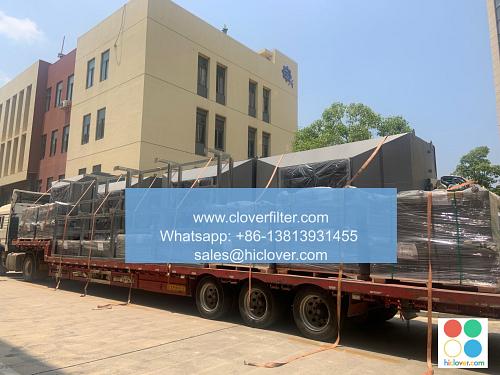The Impact of Air Filters on Pesticide Use and Exposure

Air filters have become an essential component in reducing pesticide use and exposure in various settings, including indoor agricultural applications, greenhouse farming, and urban pest control. The use of air filters can significantly minimize the amount of pesticides released into the air, thereby decreasing the risk of exposure to humans, animals, and the environment.
Reducing Pesticide Drift and Exposure
Pesticide drift occurs when pesticides are carried away from the target area by wind or air currents, resulting in unintended exposure to nearby crops, water sources, and human populations. Air filtration systems can help reduce pesticide drift by capturing particles and droplets containing pesticides, preventing them from escaping into the atmosphere. This is particularly important in organic farming and integrated pest management (IPM) systems, where minimizing pesticide use is a top priority.
Application Areas
The use of air filters to reduce pesticide exposure is not limited to agricultural settings. Other application areas include:
- Urban pest control: Air filters can be used in pest control services to reduce the amount of pesticides released into the air during treatments, minimizing exposure to humans and pets.
- Greenhouse farming: Air filters can help maintain a controlled environment in greenhouses, reducing the need for pesticides and minimizing the risk of exposure to workers and crops.
- Indoor agricultural applications: Air filters are essential in indoor agricultural settings, such as hydroponic farms and aeroponic systems, to maintain a clean and healthy environment for crops and workers.
- Reduced pesticide exposure: Air filters can minimize the amount of pesticides released into the air, reducing the risk of exposure to humans, animals, and the environment.
- Improved air quality: Air filters can help maintain good air quality by removing particles and droplets containing pesticides, reducing the risk of respiratory problems and other health issues.
- Increased crop yields: By reducing pesticide use and exposure, air filters can help maintain a healthy environment for crops, resulting in increased yields and better crop quality.
- Cost savings: The use of air filters can help reduce the amount of pesticides needed, resulting in cost savings for farmers and pest control services.
Benefits of Air Filters in Pesticide Use and Exposure
The use of air filters in pesticide use and exposure offers several benefits, including:
Conclusion
In conclusion, air filters play a crucial role in reducing pesticide use and exposure in various settings. By minimizing pesticide drift and exposure, air filters can help maintain a clean and healthy environment for humans, animals, and crops. As the world continues to grapple with the challenges of sustainable agriculture and environmental protection, the use of air filters is likely to become an increasingly important component in integrated pest management systems and organic farming practices. You haven’t asked a question or provided any context. What would you like to talk about?

